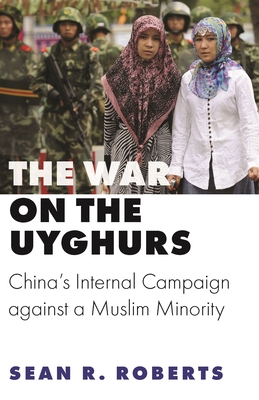Expedite your nonfiction book discovery process with Readara interviews, summaries and recommendations, Broaden your knowledge and gain insights from leading experts and scholars
In-depth, hour-long interviews with notable nonfiction authors, Gain new perspectives and ideas from the writer’s expertise and research, Valuable resource for readers and researchers
Optimize your book discovery process, Four-to eight-page summaries prepared by subject matter experts, Quickly review the book’s central messages and range of content
Books are handpicked covering a wide range of important categories and topics, Selected authors are subject experts, field professionals, or distinguished academics
Our editorial team includes books offering insights, unique views and researched-narratives in categories, Trade shows and book fairs, Book signings and in person author talks,Webinars and online events
Connect with editors and designers,Discover PR & marketing services providers, Source printers and related service providers

The War on the Uyghurs: China's Internal Campaign Against a Muslim Minority
Political Science > Human Rights
- Princeton University Press
- Hardcover
- 9780691202181
- 9.3 X 6.2 X 1.1 inches
- 1.55 pounds
- Political Science > Human Rights
- (Single Author) Asian American
- English
Readara.com
Book Description
How China is using the US-led war on terror to erase the cultural identity of its Muslim minority in the Xinjiang region
Within weeks of the September 11 attacks on New York and Washington, the Chinese government warned that it faced a serious terrorist threat from its Uyghur ethnic minority, who are largely Muslim. In this explosive book, Sean Roberts reveals how China has been using the US-led global war on terror as international cover for its increasingly brutal suppression of the Uyghurs, and how the war's targeting of an undefined enemy has emboldened states around the globe to persecute ethnic minorities and severely repress domestic opposition in the name of combatting terrorism.
Of the eleven million Uyghurs living in China today, more than one million are now being held in so-called reeducation camps, victims of what has become the largest program of mass detention and surveillance in the world. Roberts describes how the Chinese government successfully implicated the Uyghurs in the global terror war--despite a complete lack of evidence--and branded them as a dangerous terrorist threat with links to al-Qaeda. He argues that the reframing of Uyghur domestic dissent as international terrorism provided justification and inspiration for a systematic campaign to erase Uyghur identity, and that a nominal Uyghur militant threat only emerged after more than a decade of Chinese suppression in the name of counterterrorism--which has served to justify further state repression.
A gripping and moving account of the humanitarian catastrophe that China does not want you to know about, The War on the Uyghurs draws on Roberts's own in-depth interviews with the Uyghurs, enabling their voices to be heard.
Author Bio
Joining the Elliott School in 2008 as the Director of the International Development Studies program, Sean Roberts is a cultural anthropologist with extensive applied experience in international development work.
Having conducted ethnographic fieldwork among the Uyghur people of Central Asia and China during the 1990s, he has published extensively on this community in scholarly journals and collected volumes. In addition, he produced a documentary film on the community entitled Waiting for Uighurstan (1996).
From 1998 to 2000 and 2002 to 2006, he worked at the United States Agency for International Development (USAID) in Central Asia on democracy and governance programs, designing and managing projects in civil society development, political party assistance, community development, independent media strengthening, and electoral assistance.
From 2006 to 2008, Dr. Roberts was a post-doctoral fellow in Central Asian Affairs at Georgetown University. At the same time, he continued to work on development projects for a variety of NGOs and served as a Senior Program Officer at the Center for Civil Society and Governance at the Academy for Educational Development where he managed a peace-building project in Darfur, Sudan and an anti-corruption project in Moldova.
His present research is focused on China's development of the Xinjiang Uyghur Autonomous Region as well as on democracy development in former Soviet Central Asia. Roberts continues his applied work on the design and evaluation of democracy and governance projects in the former Soviet Union, most recently in Ukraine where he worked on a USAID project to support decentralization and anti-corruption.
Education
Ph.D., University of Southern California
Videos
No Videos
Community reviews
No Community reviews

